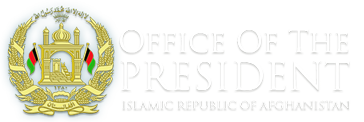
New Delhi: - Deputy Chief of Mission M. Ashraf Haidari was invited as Chief Guest to open a two-week executive education program for a group of Afghanistan’s ministerial directors of human resources organized by Jindal Global University during January 13-27, 2015. Funded by the World Bank as part of continued international assistance to build institutional capacity in Afghanistan, the Program invited international experts, including Indians, who lectured and discussed with the participants a range of human resource management issues, including: “Globalization and Its Impact on Office Environment; Emotional Intelligence for the Work Place; Recruitment and Talent Management;” and so on.
Moreover, the Program included a number of technical visits to India’s private, public, and non-profit institutions, including a visit to India’s newly established Ministry for Skill Development and Entrepreneurship, which allowed the participants to observe and discuss how those institutions managed their human resources. The participants were also invited to an interactive session at India’s Islamic Center in New Delhi where they met India’s senior civil service officers, including a lecture by India’s top civil service officer, Cabinet Secretary Ajit Kumar Seth, who discussed India’s administrative reforms with a focus on human resource management.
In his inaugural remarks, Mr. Haidari acknowledged the hard work of the Jindal Global University leadership, including Vice Chancellor C. Raj Kumar and Professor and Dean of Jindal School of International Affairs Sreeram S. Chaulia, who closely collaborated with Mr. Haidari and Indian Ambassador to Afghanistan Amar Sinha to ensure that the Program took place, as scheduled. The University also strove to ensure that the Program provided the participants with the highest quality training consisting of lectures, interactive sessions, and technical site visits.

In addition, Mr. Haidari shared with the group his own management experience in the Foreign Service context, highlighting weaknesses across Afghanistan’s administrative system, which he noted required immediate attention for implementation of structural reforms. “I also reiterate the importance of expanding these shorter-term training programs to longer-term degree programs, especially in human resource management, so that when future participants go back home, they will properly transfer their accumulated technical expertise to others,” said Mr. Haidari. The participants agreed with him, which Mr. Haidari discussed with the University and the head of delegation, Mr. Humayon Hazim, representing Afghanistan’s Independent Administrative Reform and Civil Service Commission.
Mr. Hazim and Professor Chaulia welcomed Mr. Haidari’s recommendation to consider including a long-term degree program for future participants, which Mr. Hazim would raise with the Afghan Ministry of Finance for consideration by the World Bank. The Program ended with a number of sightseeing visits to India’s cultural heritage sites, including Taj Mahal, which signify the deep, ancient ties between Afghanistan and India.






